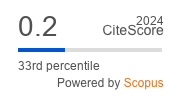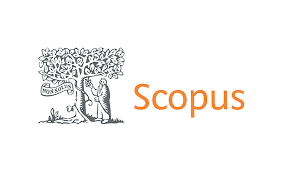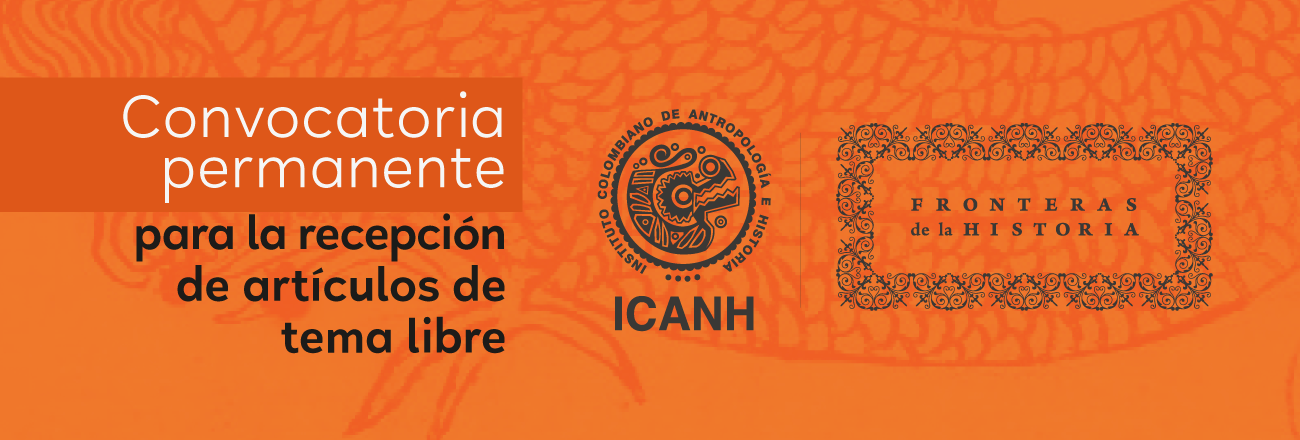Exploring the Experiences of Gay Teachers in High-Complexity Secondary Schools: Between the Closet and the Classroom
Abstract
This qualitative study explores, from a phenomenological approach, the experiences of gay teachers in highly complex secondary education centers in Spain, all of whom are «in the closet» in their professional environment. Through case study analysis, three main categories are identified: challenges and adaptation strategies; school environment and institutional support; and visibility and concealment. The results reveal a careful management of sexual orientation to avoid conflicts and discrimination, facing significant stress, and questioning the role of heterosexual allies in LGBTIQ+ matters. Although Spain has advanced legislation on diversity and gender, rigid barriers to real inclusion persist, impacting the emotional well-being of teachers. This impact is more intense for non-heterosexual teachers working in high-complexity environments, within a profession that already has high rates of psycho-emotional distress. The conclusions emphasize the need for more inclusive educational policies and continuous diversity training to improve teachers' well-being, which, in turn, would enhance the school environment and the learning of children and adolescents.
Downloads
References
Abreu Fuentes, J. R. (2020): «La Homosexualidad en los Ambientes Educativos», Revista Científica Cienciaeduc, 6(1). Disponible en web: http://portal.amelica.org/ameli/jatsRepo/480/4802048032/html/
Alianza Gay y Lésbica Contra la Difamación (GLAAD) (2010): Guía Para los Medios De la Alianza Gay y Lésbica Contra la Difamación. Para uso en los medios en español. Disponible en web: https://esmules.org/wp-content/uploads/2018/06/guicc81a-de-medios-glaad-espancc83ol.pdf
Allen, L. (2019): «Heterosexual students’ accounts of teachers as perpetrators and recipients of homophobi», Journal of LGBT Youth, 17(3), pp. 260–279. DOI: https://doi.org/10.1080/19361653.2019.1643272
Álvarez, I., González-Parera, M., y Manero, B. (2022). «The Role of Emotions in Classroom Conflict Management. Case Studies Geared Towards Improving Teacher Training», Frontiers in Psychology, 13. DOI: https://doi.org/10.3389/fpsyg.2022.818431
Amigo, A.M. (2020): Cisgenerismo, homofobia y transfobia; la escuela como espacio de reproducción de discursos discriminatorios, tesis doctoral inédita, Universidad de A Coruña. Disponible en web: https://investigacion.usc.gal/documentos/5fac8ed4299952051cc19e43
Anderson, C., y Kirkpatrick, S. (2015): «Narrative interviewing», International Journal of Clinical Pharmacy, 38, pp. 631-634. DOI: https://doi.org/10.1007/s11096-015-0222-0
Aspers, P., y Corte, U. (2019): «What is Qualitative in Qualitative Research», Qualitative Sociology, 42, pp. 139 - 160. DOI: https://doi.org/10.1007/s11133-019-9413-7
Astudillo Lizama, P. (2023): «Docentes gays y lesbianas en escuelas de Santiago: Agencia personal frente a la violencia homofóbica», Pensamiento educativo, 60(3), 00106. Doi: https://dx.doi.org/10.7764/pel.60.3.2023.6
Bahamondes, J., Gómez, F., Barrientos, J., Cárdenas, M., y Guzmán-González, M. (2020): «Adormeciendo la percepción del estigma: la justificación del sistema disminuye el malestar psicológico mediante la reducción del estigma percibido entre gays y lesbianas», International Journal of Social Psychology, 35(2), PP. 282-309. DOI: https://doi.org/10.1080/02134748.2020.1721052
Bevan, M. (2014): «A Method of Phenomenological Interviewing», Qualitative Health Research, 24, pp. 136 - 144. DOI: https://doi.org/10.1177/1049732313519710
Cain, R. (1987): Disclosure and Secrecy among Gay Men, tesis doctoral inedita, McGill University, Montreal. Disponible en web: https://escholarship.mcgill.ca/downloads/v405sc78z
Campo, A., Herazo, E., y Oviedo, H. C. (2013): «Sustantivos para definir homofobia», Revista Ciencias de la Salud, 11(3), pp. 287-294. Disponible en web: https://repository.urosario.edu.co/items/d6b56fcb-1643-4425-938b-fb7511aa5353
Carabí, A. y Segarra, M. (Eds.) (2000): Nuevas masculinidades, vol. 2, Barcelona, Icaria Editorial.
Castañeda, M. (2019): Una vida homosexual: Ser gay: 50 años de reflexión y aprendizaje, Barcelona, Grijalbo.
Castaño Garrido, C. M. y Quecedo Lecanda, M. R. (2002): «Introducción a la metodología de investigación cualitativa», Revista de Psicodidáctica, (14), pp. 5-39. Disponible en web: https://www.redalyc.org/articulo.oa?id=17501402
Catalán-Marshall, M. (2022): «Docencia e Inclusión LGTBIQ+: Revisión de investigaciones sobre prácticas pedagógicas queer en las escuelas», Revista Punto Género, 18, pp. 156-197. DOI: https://doi.org/10.5354/2735-7473.2022.69392
Departament d’Educació (2021): Tipologia dels centres educatius segons el nivell de complexitat (Informes d'Avaluació 26), Consell Superior d’Avaluació del Sistema Educatiu, Generalitat de Catalunya. Disponible en web: http://csda.gencat.cat/web/.content/home/arees-actuacio/publicacions/informes-avaluacio/26-informe.pdf
Duque, H. y Aristizábal Díaz-Granados, E. (2019): «Análisis fenomenológico interpretativo. Una guía metodológica para su uso en la investigación cualitativa en psicología», Pensando Psicología, 15(25), pp. 1-24. DOI: https://doi.org/10.16925/2382-3984.2019.01.03
Dukes, S. (1984): «Phenomenological methodology in the human sciences», Journal of Religion and Health, 23, pp. 197-203. DOI: https://doi.org/10.1007/BF00990785
Federación Estatal de Lesbianas, Gais, Trans, Bisexuales, Intersexuales y más (FELGTBI+) (2020): Fotografía del personal docente LGTBI+ en el ámbito educativo. Disponible en web: https://felgtbi.org/wp-content/uploads/2022/09/DatosEstudioProfesorado_felgtbi.pdf
FELGTBI+ (2022): Personal LGTBI+ de los centros educativos y personas aliadas. Disponible en web: https://n9.cl/295zk
FELGTBI+ y CCOO (2024): Centros educativos, profesorado LGTBI+ y personas aliadas. Disponible en web: https://n9.cl/afzu3l
Finlay, L. (2014): «Engaging Phenomenological Analysis», Qualitative Research in Psychology, 11, pp. 121-141. DOI: https://doi.org/10.1080/14780887.2013.807899
Flyvbjerg, B. (2006): «Five Misunderstandings About Case-Study Research», Qualitative Inquiry, 12, pp. 219-245. DOI: https://doi.org/10.1177/1077800405284363
Forbes, T. D. y Ueno, K. (2020): «Post-gay, political, and pieced together: Queer expectations of straight allies», Sociological Perspectives, 63(1), pp. 159-176. DOI: https://doi.org/10.1177/0731121419885353
Frenzel, A., Daniels, L., y Burić, I. (2021): «Teacher emotions in the classroom and their implications for students», Educational Psychologist, 56, pp. 250-264. DOI: https://doi.org/10.1080/00461520.2021.1985501
García-Pérez, R., Rebollo, M. Á., Vega, L., Barragán-Sánchez, R., Buzón, O., y Piedra, J. (2011). El patriarcado no es transparente: competencias del profesorado para reconocer desigualdad. Culture and Education, 23(3), 385-397. https://doi.org/10.1174/113564011797330298
Goffman, E. (1959): The presentation of self in everyday life, Nueva York, Doubleday.
Goffman, E. (1963): Stigma: Notes on the management of spoiled identity, USA, Prentice-Hall.
Heyink, J. y Tymstra, T. (1993): «The function of qualitative research», Social Indicators Research, 29, pp. 291-305. DOI: https://doi.org/10.1007/BF01079517
IPSOS (2022): LGBT+ Pride 2021 Global Survey. Disponible en web: https://n9.cl/240l12
Joya Ramírez, N. E., Mendieta Izquierdo, G. y Pérez Hernández, E. A. (2022): «Estigma internalizado en un grupo LGBT», El Ágora USB, 22(1), pp. 301-316. DOI: https://doi.org/10.21500/16578031.4680
Knaack, P. (1984): «Phenomenological Research», Western Journal of Nursing Research, 6, pp. 107 - 114. DOI: https://doi.org/10.1177/019394598400600108
Lagarde, M. (1996): Género y feminismo. Desarrollo humano y democracia, Madrid, Horas y Hora. Disponible en web: https://n9.cl/aguqqi
Layland, E. K., Carter, J. A., Perry, N. S., Cienfuegos-Szalay, J., Nelson, K. M., Bonner, C. P. y Rendina, H. J. (2020): «A systematic review of stigma in sexual and gender minority health interventions», Translational behavioral medicine, 10(5), pp. 1.200-1.210. Disponible en web: https://n9.cl/yxisn
Martínez Salcido, L. (2016): «Ser docente no heterosexual: Ser, pero no existir. Primeros hallazgos», RECIE. Revista Electrónica Científica De Investigación Educativa, 3(1), pp. 137-143. Disponible en web: https://n9.cl/nr7h3
Meyer, I. H. y Dean, L. (1998): «Internalized homophobia, intimacy, and sexual behavior among gay and bisexual men», en G. M. Herek. ed., Stigma and sexual orientation: Understanding prejudice against lesbians, gay men, and bisexuals, Thousand Oaks, Sage Publications, pp. 160-186.
Meyer, I. H. (1995): «Minority Stress and Mental Health in Gay Men», Journal of Health and Social Behavior, 36(1), pp. 38-56. DOI: https://doi.org/10.2307/2137286
Miles, M. B. y Huberman, A. M. (1994): Qualitative data analysis: An expanded sourcebook, Thousand Oaks, Sage Publications.
Ministerio de Educación, Formación Profesional y Deportes (s/d): Lo que necesitas saber sobre el sistema educativo en España. Disponible en web: https://n9.cl/6qrut8
Morgan, G. y Smircich, L. (1980): «The Case for Qualitative Research», Academy of Management Review, 5, pp. 491-500. DOI: https://doi.org/10.5465/AMR.1980.4288947
Moya, M. y Moya-Garófano, A. (2020): «Discrimination, Work Stress, and Psychological Well-being in LGBTI Workers in Spain», Psychosocial Intervention, 29(2), pp. 93-101. DOI: https://doi.org/10.5093/pi2020a5
Nii Laryeafio, M. y Ogbewe, O. C. (2023): «Ethical consideration dilemma: systematic review of ethics in qualitative data collection through interviews», Journal of Ethics in Entrepreneurship and Technology, 3(2), pp. 94-110. DOI: https://doi.org/10.1108/JEET-09-2022-0014
Ortega, A. B. y Drouillas, R. P. (2016): «Stop homofobia: La figura del referente», RES: Revista de Educación Social, 23, PP. 346-364. Disponible en web: https://n9.cl/c5h9f
Penna Tosso, M. y Sánchez Sáinz, M. (2015): «Evaluación de la homofobia en los futuros docentes de Educación Secundaria», Revista de Investigación Educativa, 33(1), pp. 83-98. DOI: http://dx.doi.org/10.6018/rie.33.1.179671
Puertas, P., Zurita, F., Chacón, R., Castro, M., Ramírez, I., y González, G. (2020). La inteligencia emocional en el ámbito educativo: un meta-análisis. Anales de Psicología / Annals of Psychology, 36(1), 84-91. https://doi.org/10.6018/analesps.345901
RAINBOW (s/d): Rights Against INtolerance: Building an Open-minded World, Milán, CIG - Centro di Iniziativa Gay (Arcigay Milano). Disponible en web: http://www.rainbowproject.eu/material/es/glossary.htm
Ramírez Pavelic, M. y Contreras Salinas, S. (2016): «Narrativas de identidad afectivo-sexual LGTB en contextos escolares: el aparecer frente al Otro», Estudios pedagógicos, 42(1), pp. 235-254. DOI: https://dx.doi.org/10.4067/S0718-07052016000100015
Renovell-Rico, S., Vidal Prades, E. D., y Ortega Leal, M. P. (2022): «Homofobia en las aulas valencianas», Revista De Estudios Socioeducativos. ReSed, 1(10), pp. 75-92. DOI: https://orcid.org/0000-0001-9372-2384
Sanders, P. (1982): «Phenomenology: A New Way of Viewing Organizational Research», Academy of Management Review, 7, pp. 353-360. DOI: https://doi.org/10.5465/AMR.1982.4285315
Sedgwick, E. (1990): Epistemology of the closet, Berkeley, University of California Press. DOI: https://doi.org/10.2307/3189546
Seers, K. (2011): «Qualitative data analysis», Evidence Based Nursing, 15, p. 2. DOI: https://doi.org/10.1136/ebnurs.2011.100352
Teherani, A., Martimianakis, T., Stenfors-Hayes, T., Wadhwa, A. y Varpio, L. (2015): «Choosing a qualitative research approach», Journal of graduate medical education, 7(4), pp. 669-670. Disponible en web: https://n9.cl/zkzgf
Unión General de Trabajadoras y Trabajadores de España (UGT) (2020): Hacia centros de trabajo inclusivos. La discriminación de las personas LGTBI en el ámbito laboral en España. Disponible en web: https://n9.cl/7og9u
UGT (2023): Hacia centros de trabajo inclusivos. Discriminación de las personas trans y LGTBI en el ámbito laboral en España en 2023. Retos y soluciones. Disponible en web: https://n9.cl/5qtcb
Valente, S. y Lourenço, A. A. (2020): «Conflict in the classroom: How teachers’ emotional intelligence influences conflict management», Frontiers in education 5, p. 5. DOI: https://doi.org/10.3389/feduc.2020.00005
Vallespín, I. (2023): «Supervivientes al estigma del ‘colegio gueto’: ‘Nuestro objetivo es que los alumnos no se percaten de que son pobres’», El País, 2 de agosto. Disponible en web: https://n9.cl/dkt8z
Vallespín, I. (2023): «Del cambio de nombre al de profesorado y de pedagogía: así se transforma una escuela gueto», El País, 10 de diciembre. Disponible en web: https://n9.cl/4l987m
Van Manen M. (2017): «But Is It Phenomenology?», Qualitative Health Research, 27(6), pp. 775-779. DOI: https://doi.org/10.1177/1049732317699570
Ventureira, A. M. A. y López, X. G. (2023): «Vivencias queer en el aula: bienestar autopercibido del profesorado LGBT+ gallego», Bordón. Revista de pedagogía, 75(3), pp. 11-26. Disponible en web: https://recyt.fecyt.es/index.php/BORDON/article/view/96356
Weinberg, G. H. (1972): Society and the healthy homosexual, Macmillan.
Yin, R. K. (2009): Case study research: Design and methods (3th Ed.). Thousand Oaks, CA: Sage.
Copyright (c) 2024 Miguel Ángel Sevilla Mayol

This work is licensed under a Creative Commons Attribution-NonCommercial-ShareAlike 4.0 International License.

Esta obra está bajo licencia internacional Creative Commons Reconocimiento-NoComercial-CompartirIgual 4.0.









_18.09_.00_1.png)


















